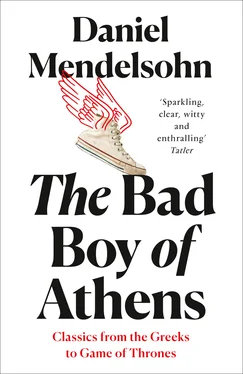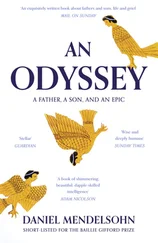But if Plath was, like Alcestis, the ‘silent woman’, Hughes himself was the silent man – aggressively, punishingly so, at least in the eyes of those who wanted to know more about the characters in this famous literary/domestic ‘tragedy’, the passions of whose ‘characters’ only the language of Greek myth and classical drama, it sometimes seems, can capture. (‘They have eaten the pomegranate seeds that tie them to the underworld,’ Malcolm wrote; ‘I go about full with the darkness of my flame, like Phèdre …’, Plath herself wrote.) When Hughes’s Birthday Letters appeared in 1997, it met with a variety of reactions: horror, joy, shock, surprise, anxiety, enthusiasm, etc. But what everyone agreed on was that it was, in essence, a relief: finally, Hughes was speaking.
And why not? ‘Ted Hughes’s history seems to be uncommonly bare of the moments of mercy that allow one to undo or redo one’s actions and thus feel that life isn’t entirely tragic,’ Malcolm wrote. Birthday Letters was viewed by many as a kind of second chance, an opportunity to undo, or perhaps to redo, his public image with respect to his dead wife. (The same is true of the personal effects – passports, letters, photographs, manuscripts – that had belonged to Hughes, and which appear to have been the bases for several of the ‘Letters’. ‘He is thought of by critics as being so self-protective and so unrevealing of himself,’ said Stephen Enniss, the curator of literary collections at the Robert W. Woodruff Library at Emory University, which now owns Hughes’ papers. ‘I think the archive will make him appear more human, more sympathetic than the detached voice and aloofness we had known.’)
Writers – even those who appear aloof and voiceless about their private lives – can reveal themselves inadvertently. Reading Malcolm’s description of the trapped Hughes, I found it hard not to think of Euripides’ Alcestis , a play that notoriously allows a flawed man to undo and redo the fatal past. The undoings and redoings you find in Hughes’s almost inadvertently moving adaptation of that work – the elisions, omissions, and reconfigurations – suggest that the poet’s most revealing public utterance with respect to Plath may not have been Birthday Letters after all. In her way – her ‘veiled’ way – the most eloquent figure, among so many strange and tragic silences, has turned out to be Euripides’ silent woman.
– The New York Review of Books , 27 April 2000
In the early spring of 411 BC, Euripides finally got what was coming to him. The playwright, then in his seventies, had always been the bad boy of Athenian drama. He was the irreverent prankster who, in his Electra , parodied the famous recognition scene in Aeschylus’ Libation Bearers . He was an avant-garde intellectual who took an interest in the latest theorists – he is said to have been a friend of Socrates, and it was at his home that Protagoras (‘man is the measure of all things’) first read his agnostic treatise on the gods; in works like The Madness of Herakles , he questioned the established Olympian pantheon. Stylistically, he was a playful postmodernist whose sly rearranging of traditional mythic material, in bitter fables like Orestes , deconstructed tragic conventions, anticipating by twenty-five centuries a theatre whose patent subject was the workings of the theatre itself.
But no aspect of the playwright’s roiling opus was more famous, in his own day, than his penchant for portraying deranged females. Among them are the love-mad queen Phaedra, whose unrequited lust leads her to suicide and murder (the subject of not one but two Hippolytus plays by the poet, one now lost); the distraught widow Evadne in Suppliant Women , who incinerates herself on her dead husband’s grave; the ruthless granny Alcmene in Children of Herakles , who violently avenges herself on her male enemies; the wild-eyed Cassandra in Trojan Women ; the list goes on and on. And, of course, there was Medea, whom the Athenians knew from established legend as the murderess of her own brother, the sorceress who dreamed up gruesome ways to destroy her husband Jason’s enemy Pelias, and whom Euripides – not surprisingly, given his tastes in female characters – decided, in his staging of the myth, to make the murderess of her own children as well.
And so it was that, shortly after winter was over in 411, the women of Athens had their revenge on the man who’d given womanhood such a bad name. Or at least they did in one playwright’s fantasy. In that year, the comic dramatist Aristophanes staged his Thesmophoriazousae . (The tongue-twister of a title means ‘Women Celebrating the Thesmophoria’ – this latter being an annual, all-female fertility festival associated with Demeter.) In this brilliant literary fantasy, Euripides learns that the women of the city are using the religious festival as a pretext to hold a debate on whether they ought to kill the playwright in revenge for being badmouthed by him in so many works over the years. Desperate to know what they’re saying about him, and eager to have someone speak up on his behalf – something no real woman would do – Euripides persuades an aged kinsman, Mnesilochus, to attend the festival in drag, spy on the proceedings, and, if necessary, speak in the poet’s defence. The plan, of course, backfires, Mnesilochus is found out, and only a last-minute rescue by Euripides himself – he comes swooping onto the stage, dressed as Perseus, in the contraption used in tragedies to hoist gods aloft – can avert disaster. Peace, founded on a promise by the playwright never to slander women again, is finally made between this difficult man of the theatre and his angry audience. The play ends in rejoicing.
Many contemporary classicists – this writer included – would argue that the females of Athens were taking things far too personally. Athenian drama, presented with much ceremony during the course of a public and even patriotic yearly civic festival, structured on the armature of heroic myth, rigidly conventional in form and diction, was not ‘realistic’; we must be careful, when evaluating and interpreting these works, of our own tendency to see drama in purely personal terms, as a vehicle for psychological investigations. If anything, Athenian tragedy seems to have been useful as an artistic means of exploring concerns that, to us, seem to be unlikely candidates for an evening of thrilling drama: the nature of the state, the difficult relationship – always of concern in a democracy – between remarkable leaders (tragedy’s ‘heroes’) and the collective citizen body.
In particular, the dialogic nature of drama made it a perfect vehicle for giving voice to – literally acting out – the tensions that underlay the smooth ideological surface of the aggressively imperialistic Athenian democracy. Tensions, that is, between personal morality and the requirements of the state (or army, as in Sophocles’ Philoctetes ), and between the ethical obligations imposed by family and those imposed by the city ( Antigone ); and the never-quite-satisfying negotiations between the primitive impulse toward personal vengeance and the civilized rule of law ( Oresteia ). Greek tragedy was political theatre in a way we cannot imagine, or replicate, today; there was more than a passing resemblance between the debates enacted before the citizen members of the assembly, and the conflicts, agones , dramatized before the eyes of those same citizens in the theatre. Herodotus tells the story of a Persian king who bemusedly describes the Greek agora , the central civic meeting space, as ‘a place in the middle of the city where the people tell each other lies’. That’s what the theatre of Dionysus was, too.
Читать дальше












